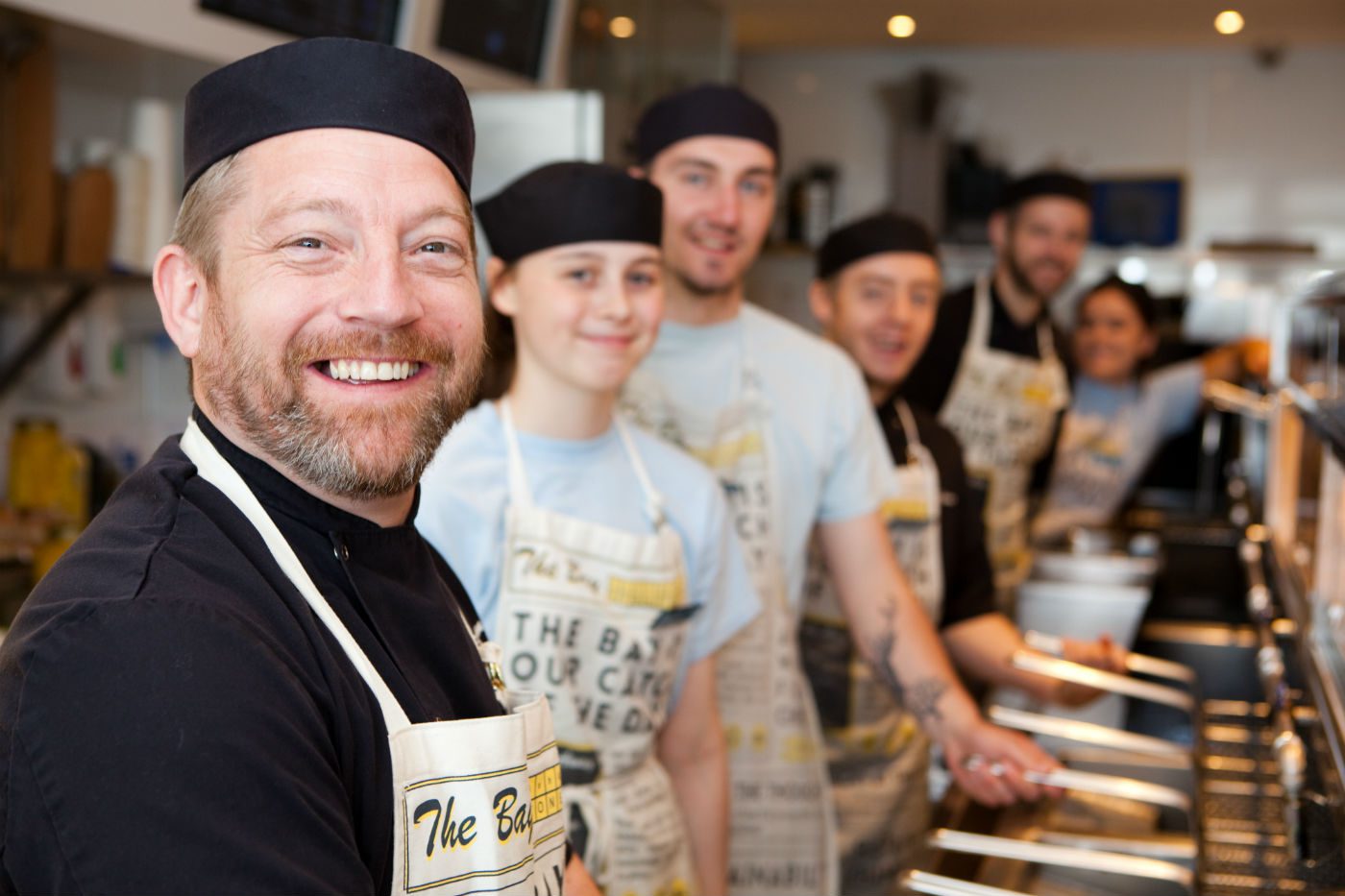The businessman has dedicated time investing in his staff and business systems to ensure The Bay is an efficient, sustainable and environmentally friendly business.

Calum and the team. Picture: The Bay
As Calum explains: “From saving potato starch to converting our frying oil into biofuel, we always want to go the extra mile to ensure that we’re looking after our planet."
It's a key facet of a job in which Calum revels, with the restaurateur stating that his team want to continue "serving up the most delicious sustainable fish suppers we can for many years to come".
To minimise waste and maximise recycling and energy efficiency, Calum explained that all packaging used at The Bay is compostable and created by Vegware, a company that use only sustainably sourced trees, corn and sugarcane.
Since The Bay has started using Vegware, Calum estimates that they have saved 12 tonnes of carbon and nearly 15 tonnes of virgin materials, both of which the chef says are equal to cancelling out the carbon from 26 flights from London to New York.
All food waste is also recycled by a company called Keenan Recycling and turned into high-grade compost, while all waste oil is accounted for and uplifted by The Bay’s supplier and turned into biofuel for a local delivery lorry.
In the future Calum intends to convert The Bay On The Road Fish and Chips - the mobile shop they take on the road - to also run on this fuel.
And the commitment to this ethos doesn't just stop there, even the fish and chips have been targeted.
Each fish used is caught daily in the North Sea from stocks that are fully sustainable - according to the Marine Conservation Society - while 89 per cent of all ingredients used are sourced from within a 50-mile radius which helps the business to dramatically reduce food miles and supporting the local economy.
Calum added that here are so many opportunities for fish and chip shops to reduce their carbon footprint - even the starch off the potatoes does not need to be wasted.
The Bay has invested in a special piece of kit that enables the staff to filter off the starch and decant it so it can be collected by the farmer to feed his pigs, with the farmer regularly picking up 50 litres of starch at a time.
So does he think the rest of the industry will be able to follow his lead?
"All you need is a bit of creativity and some hard work – something we’re no strangers to in our industry!"
